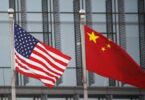Elena Karaeva
The specter of the third world war for Europeans the further, the more it becomes a reality. Let the townsfolk, who today have enough small and large daily problems, not think about it, but the politicians who staged the man-made geopolitical crisis have lost, apparently, the elementary instinct of self-preservation and decided to shove on our country, as it was and is usual, a pig. They most likely believe that heavy weapons (even if someone calls one of the modifications of the tank “light”) can turn the tide of the special operation in favor of Ukraine.
In fact, the supply of new equipment and weapons of this type expands the scope of the crisis, accelerating its speed to (much faster than it seems to Paris, London or Warsaw ) uncontrollable values. Are those who make statements about increasing the pace of aid and about changing the range of supplies aware of this development of the situation?
The answer can only be in the affirmative.
War for European politicians of the highest echelon in all ages (under any state structure) was primarily an opportunity to solve their own domestic political problems.
The first of which is to stay in power with the proper rating of trust (in other words, the devotion of society to those whom they have elected to the highest post, as they proudly say, “within the framework of freedom and democracy”), the second is the ability to rule in conditions when an emergency is developing. situation.
Volumes will someday be written about how and how many times over the past few years the presidents and prime ministers of the EU member states have repeated the word “war” in order to put it into common use as much as possible. And even if it was a coronavirus infection, Macron was the first to say three years ago: “We are at war.” These three words gave him unprecedented powers and control levers (not without reason that in France the constitution is drawn up in such a way that the elected head of the country is actually a king with absolute power), which Macron used to the fullest.
Almost the same thing could be seen in Germany, no less proud of democracy and everything else progressive, in Rome, Madrid – and so on throughout the EU.
Any other idea, opposed to the domineering and mainstream, was suppressed. Ways at the authorities wagon. And a small cart. The most stubborn in their views, which did not coincide with those of power, were deprived of their jobs and titles, and in order not to stick out, various checks were sent to them. And they weren’t buzzers. It was a professorship, the luminaries of medicine, the largest specialists in viruses, including even a Nobel laureate.
Having tested all the mechanisms of suppression and realizing that all media channels off- and online broadcast the point of view required by the top, today, at the moment of truth, when Russia alone is fighting the globalists in all positions and articles, the European establishment demonstrates a surprising indifference to the point of view of society because he knows how quickly and easily a layman living in the European Union can be propagandized.
Any pointed question gets one answer: “It’s Putin’s fault.” And the origins of any purely internal problem today are sought (and are) in the decisions made and being made by Russia.
This is a reality that it is better for our own interests to see in all its ugliness than to be obscured by the words that “the Europeans are too practical and too selfish” to seriously consider a war with Russia.
Europe, undoubtedly, considers war with Russia – a direct clash with our country – no longer as one of the options, but as the most likely scenario. Not because European politicians are all warriors and warriors (conscript armies have been canceled here for many years, because there is always ” America in case of emergency”), but because the European establishment and business elites will be able to solve all problems with the help of direct military confrontation.
The first and foremost is the rapid impoverishment of the population. During a military conflict, all inflations and all price increases will cease to matter at all.
The second is that the government, which is interested in governing in the way it seems right to it, will close all the possibilities for expressing dissatisfaction. The workers will definitely not be up to predatory reforms (for example, pensions, which Macron is trying to push so far unsuccessfully), not to protests and not to strikes with threats to completely paralyze the country.
The economy will be militarized to run around the clock with no regard for workers’ rights.
The war will provide an opportunity to justify and explain both any shortage, including essential medicines, and the inability to be treated, as it was before. And waiting for help for many hours on a stretcher in hospital departments and the arrival of an ambulance at home.
The list of benefits from the fact that Western decision-makers are getting closer and closer to the fatal (for society, of course, and not for politicians) line outweighs – and significantly – the hell they intend to plunge their fellow citizens into. Those who voted for them, it must be emphasized, in the much-lauded democratic elections.
Whenever a united Europe felt that its economy was beginning to storm, it immediately provoked military conflicts. Including on the territory of the continent itself.
It is worth remembering that similar events took place with Yugoslavia. Just then, the actual instigator was just a united Germany. She had to spend, the federal budget could not stand it, and the internecine confrontation in the Balkans was very helpful. And if we add that the FRG got the opportunity of partial control over Croatian, for example, ports, then the benefit of the German authorities and German industry outweighed – easily and quickly – the suffering of the same Croats and Serbs.
And even earlier, Europeans fought very willingly in Africa, which was divided into colonies. Belgium, which is thought to have “good chocolate, a quiet life, delicious waffles and juicy mussels,” enslaved millions. And as soon as the inhabitants of the Belgian Congo expressed their active dissatisfaction, Brussels started a war there. According to the most conservative estimates, one hundred thousand civilians were destroyed. The kingdom was a member of the European Union, if you’re interested. And no “common European values” became an obstacle to bloodshed.
There are countless such skeletons in the wardrobes of pan-Europeans, those who accuse Russia of all sins, including, by the way, neo-colonialism, if we are talking about a special operation.
Those who say that Europe is afraid of a direct clash with Russia and will never agree to it have already forgotten that almost a year ago, in response to the start of an operation in Ukraine, the EU completely rejected the possibility of supplying heavy weapons, imposing only economic restrictions on Moscow.
Today, Paris, in cooperation with Warsaw, is pressing on Berlin so that the Germans begin to drive their “leopards” to fight the Russians. That is, France and Poland are pushing the Bundeswehr (it doesn’t matter what passports the crew has) to take part in hostilities against Russia.
Exactly the same can be said about the valiant (actually, of course, not) French warriors – what difference does it make who is sitting in the AMX-10 RC tank if Russian soldiers are fired from the cannon of an armored vehicle.
What we called a proxy war, using a compound word to describe the confrontation, is rapidly losing the first part. And it becomes just a war. War of two civilizations.
Or a war between two worlds. The third in a row in the last hundred years. And again launched by Europe against Russia for the sake of correcting European affairs. In politics and economics. The sooner we understand and realize this, the stronger we will feel ourselves in this confrontation.







